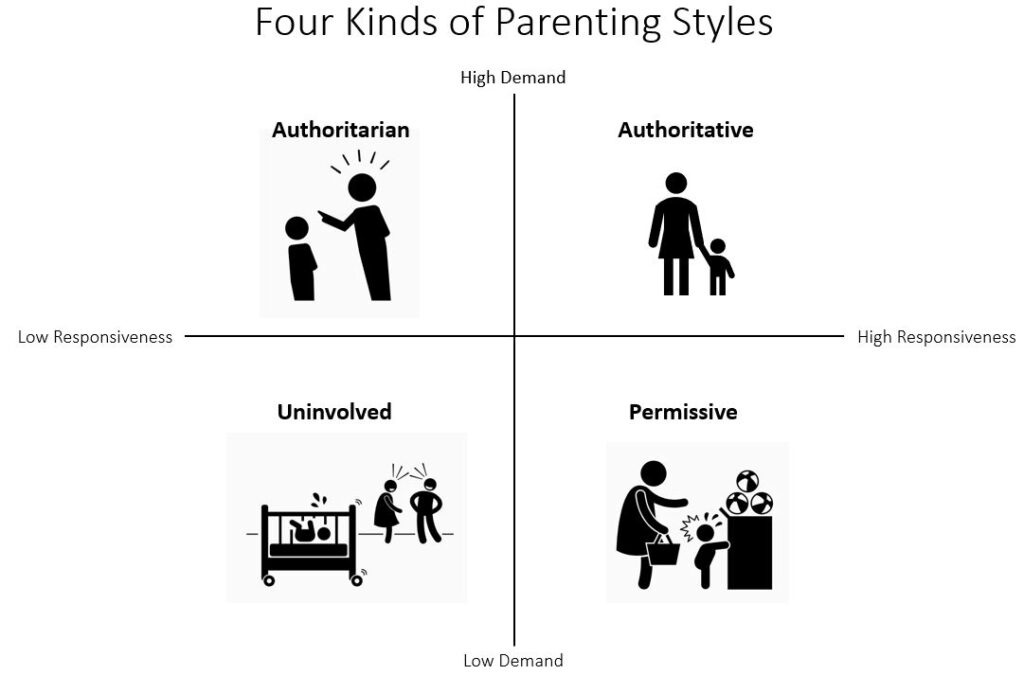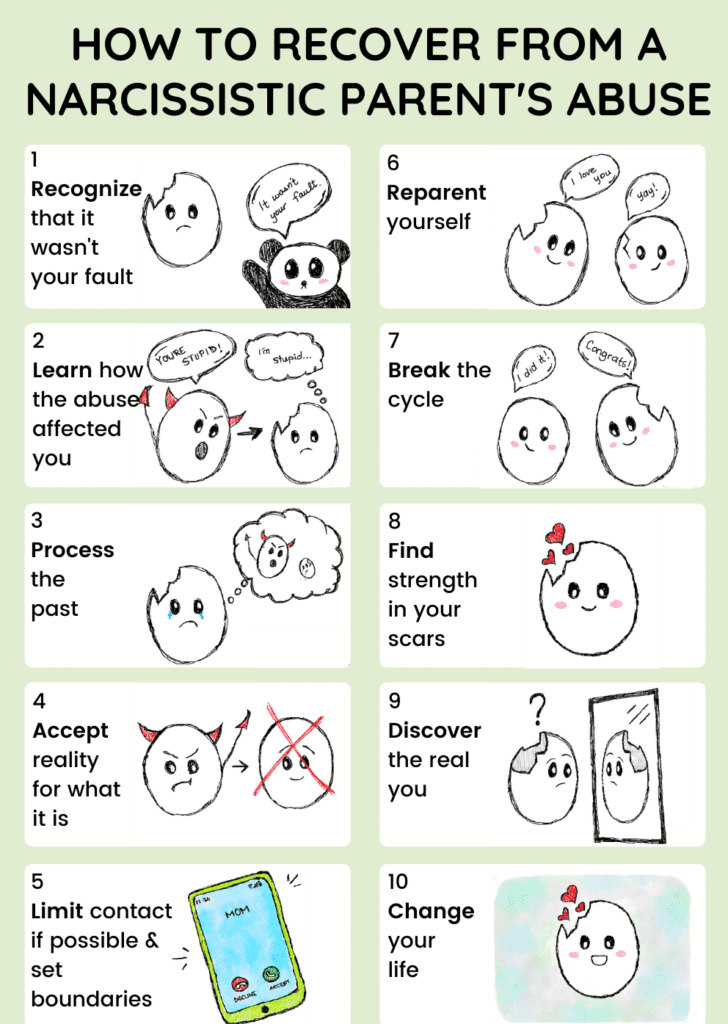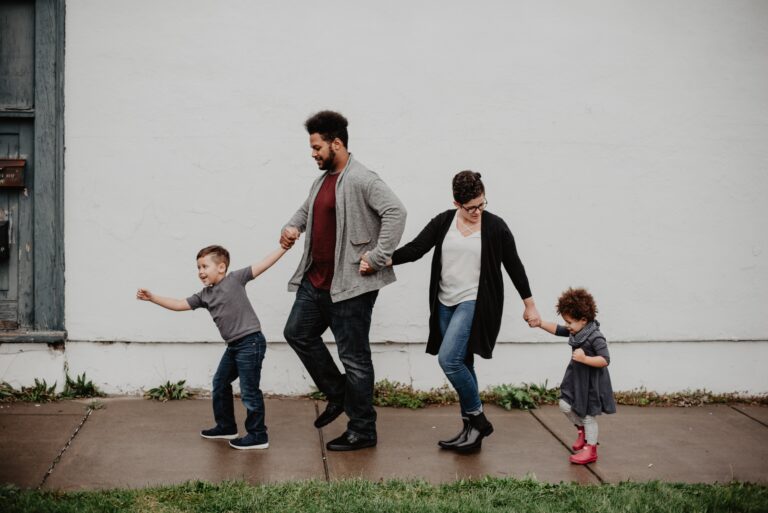Neglectful Parenting?
Neglectful parenting, also known as uninvolved parenting, is a style of parenting in which the parent is emotionally uninvolved and unresponsive to their child’s needs. Neglectful parents may fail to provide basic needs such as food, shelter, and clothing, or they may fail to provide emotional support, affection, and attention.
Signs And Characteristics Of Neglectful Parenting
Uninvolved parenting can manifest in a variety of ways, and the signs and characteristics may vary depending on the severity and duration of the neglect. However, some common signs and characteristics of Uninvolved parenting include:
Lack of emotional support: Neglectful parents may be emotionally unavailable or unresponsive to their child’s emotional needs. They may not provide comfort or support during times of stress or difficulty.
Failure to meet basic needs: Neglectful parents may fail to provide adequate food, clothing, shelter, or medical care for their child. They may also not provide a safe and stable home environment.
Lack of supervision: Neglectful parents may not provide adequate supervision for their child, leaving them alone or with inadequate supervision for extended periods of time.
Lack of involvement: Neglectful parents may not be involved in their child’s life or activities, such as school or extracurricular activities.
Indifference or detachment: Neglectful parents may appear indifferent or detached from their child, showing little interest in their child’s life or well-being.
Inconsistent parenting: Neglectful parents may provide inconsistent or unpredictable parenting, making it difficult for the child to know what to expect or how to behave.
Abusive behavior: In severe cases, neglectful parents may engage in abusive behavior toward their child, including physical, emotional, or sexual abuse.

How Does Neglectful Parenting Affect Children?
Lack of basic needs: Neglectful parenting can result in children not receiving adequate food, clothing, shelter, medical care, or safety, which can lead to physical and developmental problems.
Emotional issues: Neglected children may have difficulty expressing their emotions and may struggle with feelings of low self-esteem, depression, anxiety, and loneliness.
Attachment issues: Neglected children may struggle with forming secure attachments and may experience difficulties in forming healthy relationships with others.
Behavioral problems: Neglected children may engage in risky behaviors or act out in inappropriate ways due to lack of guidance and consistent boundaries.
Learning difficulties: Neglected children may struggle academically, be absent from school, and may have difficulty concentrating, due to lack of support and involvement from their parents.
Social isolation: Neglected children may become socially isolated and may struggle to develop social skills, make friends, and engage in healthy activities.
Health problems: Neglected children may experience physical health problems such as malnutrition, developmental delays, and injuries.
Poor self-care: Neglected children may not learn basic self-care skills, such as hygiene and grooming, which can negatively impact their physical health and social interactions.
Mental health issues: Neglected children may be at higher risk for mental health issues such as depression, anxiety, and PTSD, which can persist into adulthood.
Long-term effects: Uninvolved parenting can have long-term effects on a child’s emotional and physical health, and can affect their relationships, academic and career success, and overall well-being throughout their life.
Examples Of Neglectful Parenting
Neglectful parenting can take many different forms, and it may not always be obvious to outsiders or even the child themselves. Here are some examples of Uninvolved parenting:
Physical neglect: A parent fails to provide adequate food, clothing, shelter, or medical care for their child. The child may be malnourished, living in unsafe or unsanitary conditions, or not receiving proper medical attention when needed.
Emotional neglect: A parent may be emotionally unavailable or unresponsive to their child’s emotional needs. They may not provide comfort or support during times of stress or difficulty, or fail to provide positive reinforcement and encouragement.
Supervision neglect: A parent may fail to provide adequate supervision for their child, leaving them alone or with inadequate supervision for extended periods of time. This can put the child at risk of harm or injury.
Educational neglect: A parent may not be involved in their child’s education or provide the necessary support for their academic success. This can lead to poor academic performance and lower educational opportunities.
Medical neglect: A parent may not seek medical attention for their child when they are ill or injured, leading to untreated medical conditions and long-term health problems.
Abusive neglect: In severe cases, neglectful parenting can involve abusive behavior towards the child, including physical, emotional, or sexual abuse.
It’s important to note that Uninvolved parenting can occur in various degrees of severity and can have significant effects on a child’s development and well-being. If you suspect a child is being neglected or abused, it’s important to report it to the appropriate authorities.
Why Do Some People Use Neglectful Parenting Method?
There is no single reason why some people may use neglectful parenting as a parenting method. Uninvolved parenting may arise from a variety of factors, including:
Lack of knowledge or skills: Some parents may lack knowledge or skills on how to effectively parent their children, and may resort to neglectful parenting out of ignorance.
Mental health issues: Parents who struggle with mental health issues such as depression or anxiety may find it challenging to provide adequate care and attention to their children, leading to Uninvolved parenting.
Substance abuse: Parents who abuse drugs or alcohol may neglect their children’s needs due to their addiction.
Financial or social stressors: Parents who are struggling financially or facing other social stressors such as unemployment or divorce may find it difficult to provide adequate care for their children.
History of abuse or neglect: Parents who have experienced abuse or neglect themselves may be more likely to repeat these patterns with their own children.

How To Cope With An Neglectful Parenting Style
Coping with an neglectful parenting style can be challenging, but there are several strategies that can help:
Seek support: Find support from trusted friends, family members, or professionals who can provide emotional support and guidance.
Practice self-care: Take care of yourself physically and emotionally by getting enough sleep, eating healthy, exercising, and practicing relaxation techniques such as meditation or deep breathing.
Set boundaries: Establish clear boundaries with the neglectful parent and communicate your needs and expectations clearly.
Focus on strengths: Identify and focus on your strengths, interests, and goals to build self-confidence and a sense of purpose.
Seek therapy: Consider therapy or counseling to address any emotional or psychological issues related to Uninvolved parenting and to develop coping strategies.
Develop a support network: Connect with others who have had similar experiences to share experiences and gain insight into coping strategies.
Seek legal help: If neglectful parenting is severe or abusive, seek legal help to protect yourself and your children.
Educate yourself: Learn about healthy parenting styles and effective parenting strategies to help break the cycle of Uninvolved parenting.
Practice positive parenting: If you have children, practice positive parenting strategies that prioritize their needs and well-being.
Practice forgiveness: Consider forgiveness as a way to heal and move forward, but only if it feels safe and appropriate to do so.
Remember that coping with Uninvolved parenting is a process, and it takes time and effort. With the right support and resources, it’s possible to heal and overcome the negative effects of neglectful parenting.
Conclusion
Compared to other parenting styles, such as authoritarian, permissive, or authoritative, uninvolved parenting is considered the most harmful and detrimental to a child’s development and well-being. Children who experience uninvolved parenting may struggle with emotional regulation, social skills, academic performance, and mental health issues. They may also experience attachment issues, low self-esteem, and behavioral problems. It’s important for parents to be aware of their parenting style and seek help if they recognize any signs of uninvolved parenting in their own behavior.
FAQs
1. What is neglectful parenting?
Neglectful parenting is a style of parenting where parents show little interest in their children’s emotional, physical, and psychological needs.
2. What are the signs of neglectful parenting?
Signs of Uninvolved parenting can include failing to provide basic needs such as food, clothing, and shelter, ignoring or dismissing a child’s emotional needs, and showing little interest in a child’s activities or accomplishments.
3. How does neglectful parenting affect children?
Neglectful parenting can have severe negative effects on a child’s development, including social, emotional, cognitive, and behavioral problems. Children may also experience low self-esteem, depression, anxiety, and difficulty forming healthy relationships.
4. Is neglectful parenting a form of child abuse?
Uninvolved parenting can be considered a form of child abuse, as it can result in harm to a child’s physical, emotional, and psychological well-being.
5. What are the causes of neglectful parenting?
Neglectful parenting can have several causes, including a lack of parental skills, substance abuse, mental illness, poverty, and stress.
6. Can neglectful parenting be prevented?
Neglectful parenting can be prevented by providing parents with the resources and support they need to meet their children’s basic needs and develop healthy parenting skills.
7. How can neglectful parents be helped?
Neglectful parents can be helped through parenting classes, therapy, and counseling, as well as through community resources such as social services and support groups.
8. Can neglectful parents change their parenting style?
Neglectful parents can change their parenting style with the right support and resources. It may take time, effort, and a willingness to learn new skills, but change is possible.
9. Is neglectful parenting common?
Uninvolved parenting is unfortunately not uncommon. According to research, it is estimated that approximately 10-15% of parents exhibit neglectful parenting behaviors.
10. What can be done to raise awareness about neglectful parenting?
Raising awareness about Uninvolved parenting can be done through education and advocacy efforts, such as public service announcements, community outreach programs, and policy initiatives. It is important to recognize neglectful parenting as a serious issue and to work towards preventing it.
Also Check
Cramps But No Period : Cramps without Period 2023


